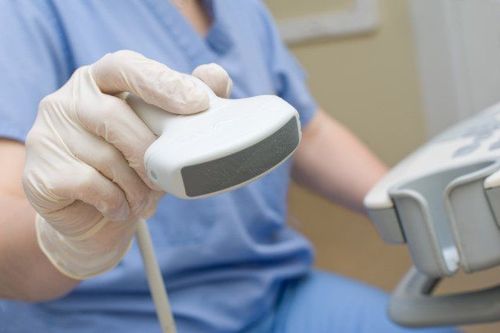A miscarriage is an undesirable event for any mother, as it significantly impacts both their body and mental health. After a miscarriage, most women are concerned about how soon they can have sexual intercourse without harming their body and quickly get conceived again.
1. What is a miscarriage?
The unexpected loss of a pregnancy before the 20th week of gestation is classified as miscarriages. According to the American College of Obstetricians and Gynecologists, the recent miscarriage rate accounts from 10% to 15% of all pregnancies, and over 80% of miscarriages occur before the fetus reaches 12 weeks of age.
There are some type of miscarriage that you can experience:
- Complete miscarriage
- Incomplete miscarriage
- Blighted ovum
- Recurrent miscarriage
- Ectopic pregnancy
- Threatened miscarriage
2. Causes of miscarriage in pregnancy women
There are many causes of miscarriage. Miscarriages before 13 weeks are primarily due to fetal factors, while those occurring between 14 and 27 weeks are mainly related to maternal factors. 9 main causes of miscarriage shown below:
- Chromosomal issues: Missing or abnormal chromosomes in the sperm or egg lead to incomplete fetal development, increasing risk of miscarriage.
- Hormonal imbalance: Lack of progesterone in the mother’s body causes the placenta to detach easily, making it difficult for the fetus to implant in the uterus, leading to miscarriage.
- Immune disorders: The mother's body fails to accept the presence of the fetus, leading to miscarriage.
- Maternal health conditions: Underlying diseases such as hypertension, diabetes, or anemia increase the risk of miscarriage.
- Women with Polycystic Ovary Syndrome (PCOS have a higher risk of miscarriage.)
- Infectious diseases during pregnancy: Pregnant women with conditions like rubella, syphilis, HIV, or malaria have higher risk of miscarriage.
Additionally, external factors such as food poisoning, accidents, or abdominal trauma also pose a risk of miscarriage. Moreover, abnormalities in the mother's uterus are also a cause of miscarriage, such as:
Cervical incompetence or a weak cervix.
3. When is it safe to have sexual intercourse after a miscarriage?
How long after a miscarriage is safe to have intercourse is something both husband and wife should be concerned about and explore. Usually, after a miscarriage, women often experience vaginal bleeding, which lasts from 1–3 days and can extend up to 7 days depending on her conditions. Having intercourse during this time carries a high risk of uterine infection.
In summary, after a miscarriage, the female body needs about 2–3 weeks to fully recover, restoring normal hormone levels, and to reach the best condition for resuming sexual activity. Conversely, if the miscarriage occurred due to chemical pregnancy, the couple can resume intercourse relatively quickly without waiting. If surgical removal of fetal tissue was necessary, recovery time will be longer, and intercourse should only occur after full recovery.
In addition to physical recovery, emotional impacts from a miscarriage can also act as a barrier from resuming intimacy. Women who have miscarried often experience sadness, denial, or depression. Many feel emotionally helpless, so both partners should give each other time to stabilize mentally and only resume sexual activity once the wife is fully recovered.
4. How to increase fertility after a miscarriage?
Miscarriage can have certain impacts on both body and mental health of the mother. Here are some tips to help improve your chances of conception:
Supplement essential vitamins: You can supplement your body with vitamins through your diet or use prenatal multivitamins. Furthermore, it is recommended to take folic acid 1–3 months before trying to conceive.
Maintain a healthy lifestyle: You should have a nutritious diet, eliminate stimulants like alcohol, tobacco, and engage in at least 30 minutes of exercise daily. This can help improve your body’s health, enhance fertility, and reduce stress after a miscarriage. Additionally, husbands should also avoid alcohol, tobacco, and other stimulants to improve sperm quality, helping their wives conceive more easily.
Practice a healthy sexual life: Having sexual intercourse at least three times a week significantly increases the chances of conception. You can also calculate ovulation timing and have intercourse 3–4 days before ovulation, as this increases the likelihood of conception compared to other times. Consider exploring positions that may enhance fertility. Depending on your health condition, couples should consider resuming sexual activity and preparing for the next pregnancy after a miscarriage. To ensure a healthy pregnancy, both partners should undergo reproductive health checkups 3–5 months before attempting to conceive.
For the Wife:
- Vaccinate before pregnancy (especially with the rubella vaccine, as rubella during pregnancy is extremely dangerous).
- Undergo genetic testing to screen for hereditary diseases before attempting pregnancy.
- Check for secondary infections.
- Women over the age of 35 (especially those who have never been pregnant) should undergo thorough health evaluations due to the following common issues during pregnancy at this age: ovarian insufficiency, preterm birth, high risk of birth defects, placenta previa, and preeclampsia.
For the Husband:
- Perform frequent reproductive health checks to identify conditions such as testicular atrophy, erectile dysfunction, or low sperm quality.
- Screen for sexually transmitted diseases, especially those that are incurable and pose infection risks.
Vinmec currently offers a variety of comprehensive healthcare programs for couples, pregnant mothers, and fetuses, including basic premarital check-ups, advanced premarital packages, and maternity care services. Vinmec’s team includes experienced specialists in obstetrics and gynecology, IVF, stem cells, and genetic technology, with the capability to implement cutting-edge reproductive support techniques.
Please dial HOTLINE for more information or register for an appointment HERE. Download MyVinmec app to make appointments faster and to manage your bookings easily.













